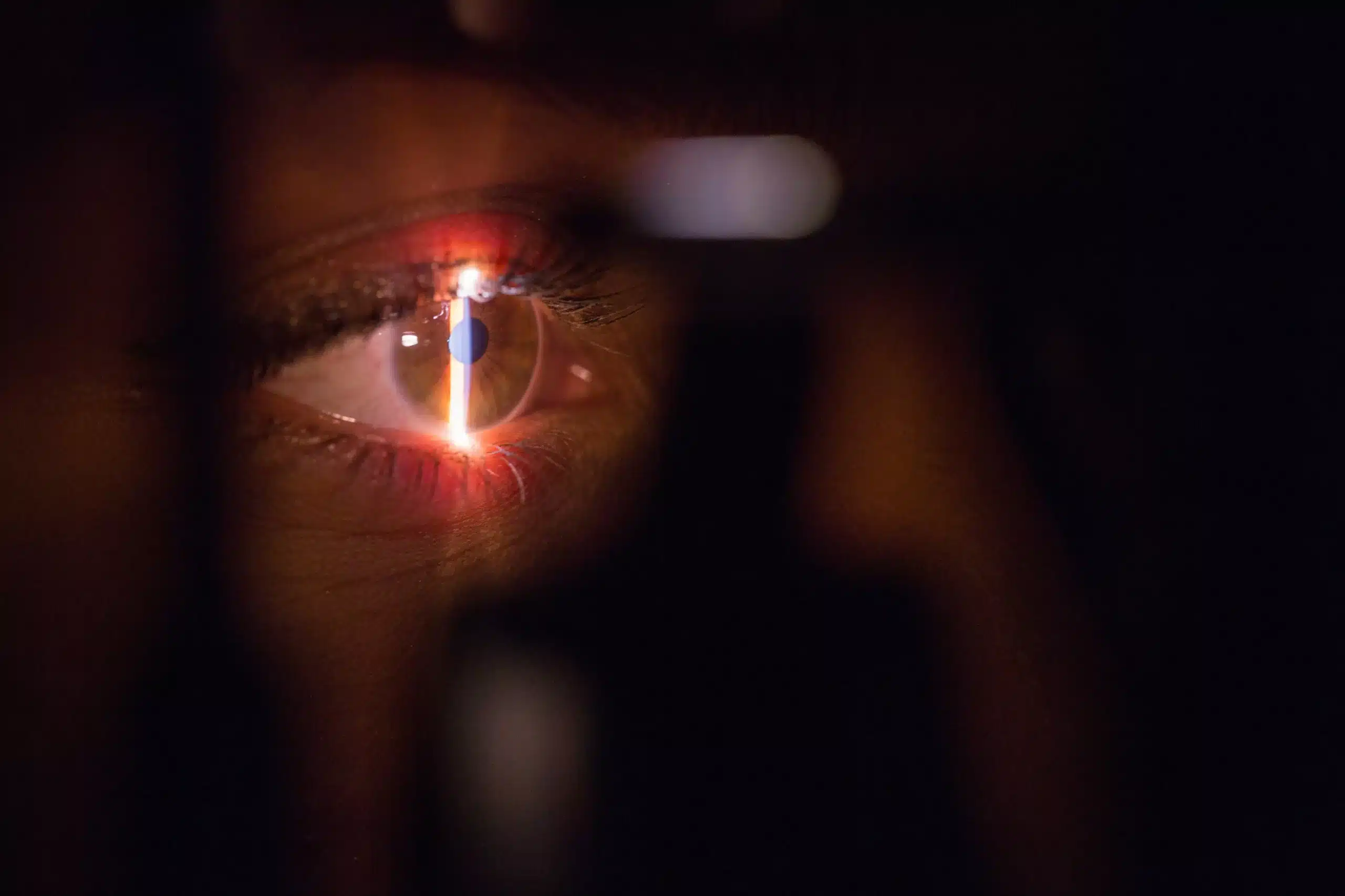Laser eye surgery, sometimes known as LASIK eye surgery involves using lasers in order to reshape the front surface (cornea) of your eyes, according to the NHS, this is done so that you can focus better. Laser eye surgery can correct short sightedness, long sightedness and astigmatism. As with every surgery, there are some risks that are involved. In this article, we will be discussing the risks and benefits of laser eye surgery.
What is laser eye surgery?
Laser eye surgery involves using lasers in order to correct short sightedness, long sightedness and astigmatism. It is suitable for most people who are over the age of 18 and have ideally had the same prescription for the last two years.
There are three main types of laser eye surgery:
- LASIK – this type of laser eye surgery is done with 2 lasers, one is used to open up a thin flap in the surface of the cornea and the other is used to reshape the cornea underneath. The protective flap will then be smoothed back over and will stay in place without the need for any stitches.
- SMILE – in this type of laser eye surgery, the surgeon will reshape your cornea through a small, self-healing hole.
- Surface laser treatments (PRK, LASEK and TransPRK) – during this type of laser eye surgery, the clear skin that covers the cornea will be removed so that the surgeon is able to reshape your cornea with the laser. The skin will then grow back naturally.
All three types of laser eye surgery will have similar results and your surgeon should talk through your options with you in order to help you decide which one will be the most helpful for you.
Benefits of laser eye surgery
Laser eye surgery is mainly designed to make you less dependent on glasses and contact lenses. It is an effective means of achieving a clearer vision and helps people to lead active lifestyles more easily. By reshaping the cornea using laser technology, short sightedness, long sightedness and astigmatism can be corrected. This can enable patients to experience clear vision, additionally, laser eye surgery is a relatively quick procedure that can require minimal downtime, therefore allowing patients to resume their normal daily activities again shortly after the treatment.
According to The Royal College of Ophthalmologists, over 95% of patients that receive laser eye surgery are satisfied with the outcome, and many patients that have had laser eye surgery in the past describe it as life changing.
Risks of laser eye surgery
All forms of eye surgery can involve an element of risk during the operation or after the operation whilst in the healing period.
Loss of vision
Permanent loss of vision is very rare after laser eye surgery, however a form of corneal transplantation may be required in order to replace a damaged block of tissue in the cornea. The need for transplantation may be caused by scarring after infection or an abnormal healing response. These problems occur infrequently and can often be corrected without transplant surgery. According to The Royal College of Ophthalmologists, less than 1 in 5000 patients will require a corneal transplant in order to restore vision after laser eye surgery. If a transplantation is necessary, good vision can normally be restored, however glasses and contact lenses may be necessary.
Additional surgery
Additional surgery is much more common than a transplantation, and up to 1 in 10 patients will require a form of additional surgery in order to get the best results from their laser eye surgery. The surgery will normally be a procedure that feels similar to the original laser eye surgery and this would be done in order to correct a problem that has occurred at the time of the surgery or after the original surgery.
Over or under correction
When you receive laser eye surgery, there is a chance that the eye will be over or under corrected. All eyes will heal and recover in different ways so even if the initial computerised prediction may show the desired result, there may be differences depending on how the eyes have healed. If this occurs, there are secondary enhancement procedures that can be done by your surgeon so that the vision can be adjusted.
Eye infections
Like all procedures, laser eye surgery carries a risk of infection, however eye infections after laser eye surgery are rare. If the procedure is carried out using sterile lasers, the surgeon will be able to avoid any physical contact with the eye and therefore minimise the risk of infection during the procedure. There is a higher risk of eye infection after the surgery and this can be treated with antibiotic eye drops.
Side effects of laser eye surgery
Once receiving laser eye surgery, there are some common side effects that most patients will experience to some degree after surgery. These side effects will normally improve with time. The most common side effects after laser eye surgery include:
- Mild discomfort – artificial tears can help with any discomfort and your eyes should usually feel comfortable about 3-6 months after the surgery
- Visual disturbances – visual disturbances such as glare from oncoming headlights when driving at night can sometimes occur after receiving laser eye surgery, this usually resolves on its own or can be treated successfully
- Red marks on the white of your eye – red blotches are often visible on the white of the eye after any form of eye surgery, these are temporary and will not affect the health of your eye.
Laser eye surgery claims
As with any surgery, laser eye surgery can involve risk, laser eye surgery in particular can be very risky due to the sensitivity of the area that is being treated. All of the potential risks that are involved with laser eye surgery should be discussed with you before the procedure, if they were not and you have suffered as a result of this, you may be able to make a claim.
If laser eye surgery goes wrong, it can have life-changing impacts for patients, and if your eye surgery has gone wrong due to negligence, you could be entitled to compensation. Some of the reasons that you may be able to make a laser eye surgery claim include:
- Incorrect information given about the surgical risks that are involved with laser eye surgery
- Surgical errors that should or could have been avoided
- Poor post-operative care
As it can be a risky procedure, it is important that you receive the best possible care, and if you believe that you have received negligent care whilst receiving laser eye surgery, you can contact one of our medical negligence experts for free, they will then be able to review your case and guide you through the claims process.
If you have suffered complications after receiving EyeCee One Lenses, Our experts are here to help.

